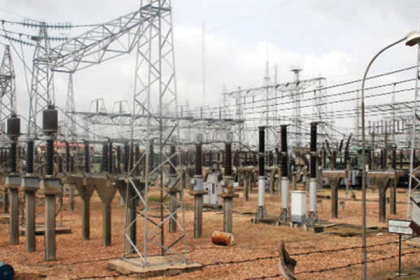
On Monday, the national electricity grid failed in part, leaving several regions of the country without power.
The Abuja Electricity Distribution Company identified the situation as a technical malfunction that impacted its consumers on Monday afternoon.
In the evening, the AEDC stated that some of its clients remained without electricity.
“We realise that some of our customers are still without electricity owing to a system failure on the national grid at 2.55 p.m. today, August 5, 2024. Please be assured that the system is gradually stabilising, and we are working hard with all key partners to restore electricity to the impacted areas as soon as possible,” the AEDC said, thanking consumers for their patience and understanding.
When reached, Ndidi Mbah, a representative for the Transmission Company of Nigeria, promised to respond with more information about the occurrence. She had yet to respond as of when this article was filed.
Meanwhile, our correspondent confirmed that the various plants’ hourly power generation had reduced from 3,749 megawatts at 2 p.m. to 3,241MW and 1,255MW at 3 p.m. It was 4,067MW as of 11 a.m.
The power generation gradually recovered, recovering to 3,00MW around 8 p.m.
Our correspondent reported that the Egbin Power Plant, which generated 222MW till 2 p.m., decreased to 0.00MW throughout the day.
According to the PUNCH, consumers would face power disruptions for the seventh time in 2024 due to grid mishaps.
During a recent conversation with our correspondent, Princewill Okorie, Executive Director of the energy Consumer Protection Advocacy Centre, expressed disappointment that the system continues to have troubles despite the increase in energy cost.
Okorie noted that unmetered users would still be forced to pay for the duration of the collapse, and questioned what the government was doing to prevent the events.
“What are the causes of these grid failures or collapses? Are the materials used in building the grip of good quality and standard? Who is managing the grid? The players in the sector are more interested in collecting money from the consumers rather than making the system stable.
“What you hear more about the power sector is payment. The money that the international communities are bringing to the industry and the money that is unlawfully collected from the consumers, where are they being utilised? The operational expenditures of the Discos, and how do they spend them?
“They have been increasing tariffs in recent months, despite the fact that the power sector is inefficient.” They want to collect money, but no one cares whether it is spent wisely. They constantly overcharging customers. The desperation to collect revenue from clients for services not provided is a difficulty.
“Now that the system has fallen, unmetered clients will continue to pay for darkness. That is unjust. “The government should address the issue of grid collapse once and for all,” Okorie said.

